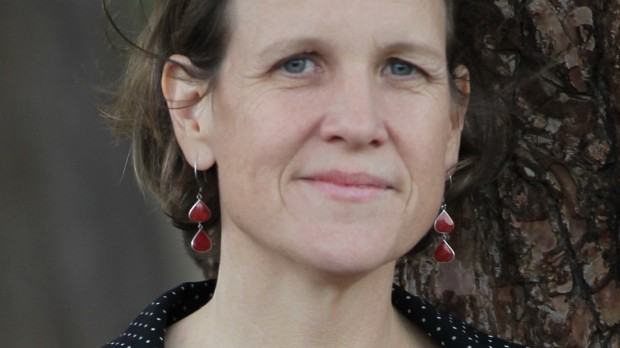
Guest contributor: Bill Lundgren
Lundgren’s Lounge: “Ghettoside: A True Story of Murder in America,” by Jill Leovy
categories: Cocktail Hour / Guest Columns / Reading Under the Influence
1 comment

Jill Leovy
Recent national events make it clear that W.E.B. DuBois’ famous observation, “The problem of the twentieth century is the problem of the color-line…” is every bit as resonant today to describe twenty-first century America as it was when first uttered, over a century ago. Ferguson, Staten Island, Cleveland, Madison… the drumbeat of places where young, unarmed black men have been killed by the police rolls on and the disconnect in the convoluted conversation between communities of color and the mostly white power structure are maddeningly unproductive, as though the dialogue is being spoken in different languages.
That is why Jill Leovy’s recent non-fiction work, Ghettoside: A True Story of Murder in America, is so important. As Michael Connelly is quoted on the front cover, “Everyone needs to read this book.” Perhaps more succinctly, people need to read this book who are bewildered by the black community’s reaction to the events mentioned above: after all, wasn’t Officer Darren Wilson exonerated by the grand jury investigating the death of Michael Brown?
African-American males comprise 6% of the U.S. population, yet they are 40% of the homicide victims. The vast majority of these crimes occur in our inner cities where they remain unsolved, receiving scant attention from a beleaguered and woefully underfunded section of the police force, the homicide detectives. The absence of authority and attention to these murders sends an unmistakable message to the black community that engenders an inevitable and deeply rooted distrust of the criminal justice system. This “plague of murders” is what happens when as Leovy says, “.. the criminal justice system fails to respond vigorously to violent injury and death… homicide becomes endemic.”
Leovy’s account is not a screed against the police–her focus is on a specific murder and the work of Detective John Skaggs to solve the case. Skaggs is a fascinating character: California beach bum on the weekends, yet relentless in his pursuit of what he perceives as justice while on the job. The murder victim at the center of this riveting narrative is the son of a highly respected African-American detective with the Los Angeles police. Leovy, an award-winning journalist for the Los Angles Times is as relentless as Skaggs in her attempts to get to the heart of this incredibly complex and nuanced issue. While she occasionally fails to acknowledge the inherent racism in play here, she does recognize the sociological dynamic. She writes, “Take a bunch of teenage boys from the whitest, safest suburb in America and plunk them down in a place where their friends are murdered and they are constantly attacked and threatened. Signal that no one cares, and fail to solve (the) murders. Limit their options for escape. Then see what happens.”
It is not a pretty sight. You will be maddened as you read, at the apparent indifference of the uniformed police and the absurd dysfunction of a police bureaucracy obsessed with meaningless statistics while people are being are being slaughtered on the streets. The heroes in this sobering tale are the homicide detectives–the John Skaggs and Wallace Tennelles (father of Bryant, the young man whose murder is at the heart of the story) of the world, people who see that justice, to be just, must be color-blind… and that recognition of this fact might, just might, be a starting point for a deeper conversation about the problem articulated by Prof. DuBois over a hundred years ago.
 [Bill Lundgren is a writer and blogger, also a bookseller at Longfellow Books in Portland, Maine (“A Fiercely Independent Community Bookstore”), where you can buy this book and about a million others, from booksellers who care. Bill keeps a bird named Ruby, a blind pug named Pearl, and a couple of fine bird dogs, and teaches at Southern Maine Community College. When he’s not skiing.]
[Bill Lundgren is a writer and blogger, also a bookseller at Longfellow Books in Portland, Maine (“A Fiercely Independent Community Bookstore”), where you can buy this book and about a million others, from booksellers who care. Bill keeps a bird named Ruby, a blind pug named Pearl, and a couple of fine bird dogs, and teaches at Southern Maine Community College. When he’s not skiing.]

Can’t wait to read this. Thanks!